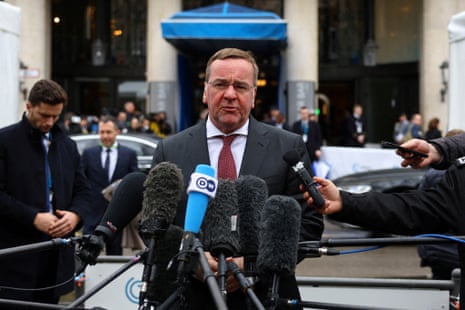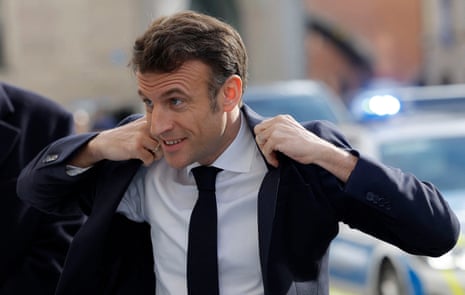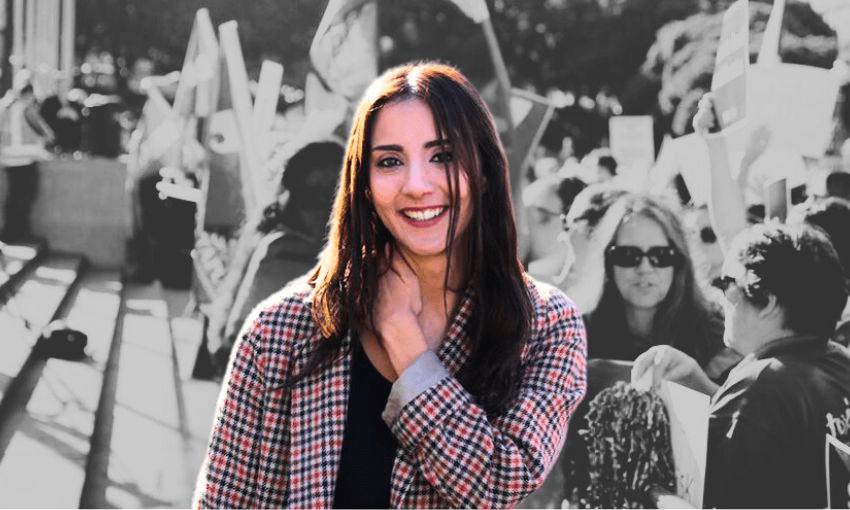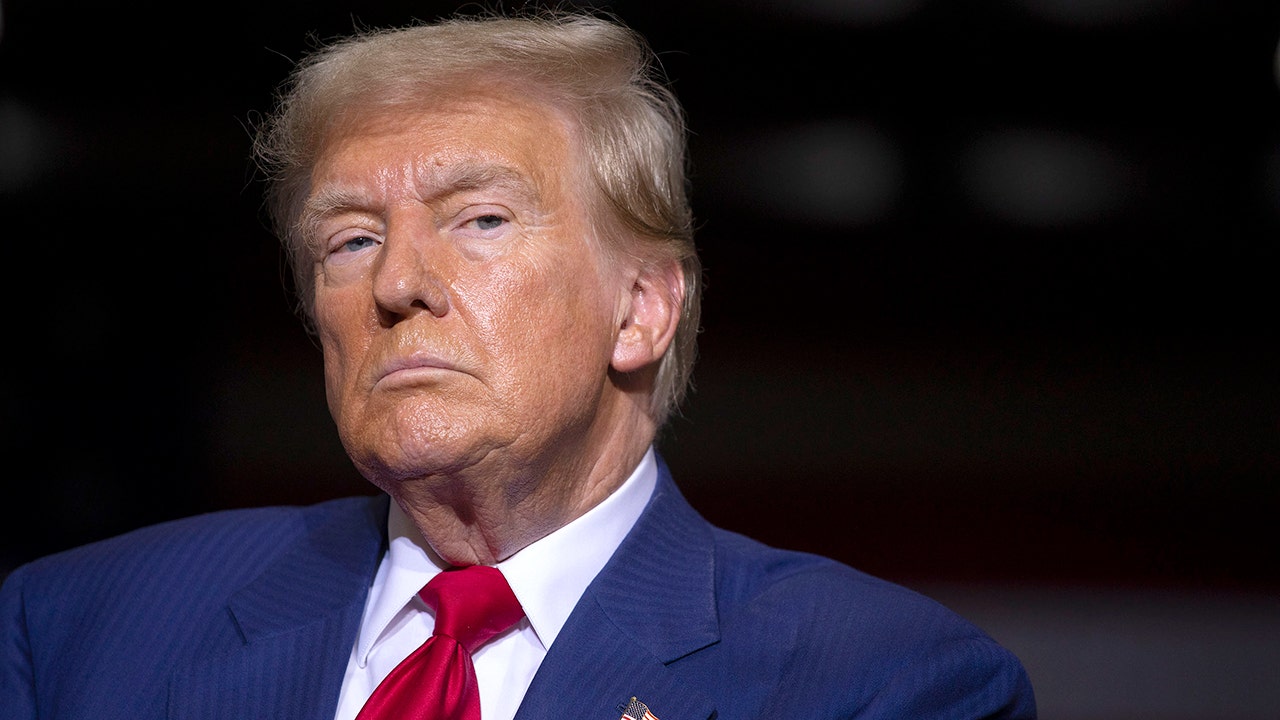World leaders meet in Munich for security conference
Senior politicians and military leaders from around the world are meeting today in Germany, with Ukrainian officials expected to address the security conference.
Bolstered by tens of thousands of reservists, Russia has intensified ground attacks across southern and eastern Ukraine, and, as the first anniversary of its 24 February invasion nears, a major new Russian offensive appears to be taking shape.
Russia rained missiles across Ukraine on Thursday and struck its largest oil refinery. Of at least 36 missiles that Russia fired about 16 were shot down, the air force said, a lower rate than normal.
Ukraine said the barrage included missiles that its air defences cannot shoot down, which will only add urgency to its appeals for more western military support.
German Chancellor Olaf Scholz, French President Emmanuel Macron and US vice-president Kamala Harris are among many top officials attending the Munich Security Conference.
Key events
Russia’s foreign ministry said it has summoned the Dutch ambassador over what it called “obsessive attempts” by authorities in the Netherlands to hold it responsible for the downing of flight MH17 in Ukraine in 2014.
In a statement, the Russian foreign ministry accused the joint investigation team set up to establish who was responsible of being “politicised”.
It comes after investigators said they had found “strong indications” that Vladimir Putin had personally signed off on a decision to supply the missile that shot down the plane, killing all 298 people onboard.
The air raid alert that was announced across Ukraine has now ended.
The World Health Organization (WHO) has appealed for more funds to support Ukraine’s health sector, which has been severely damaged by the war.
Ukraine needs more funds to ensure mental health, rehabilitation and community access to health services, WHO regional director for Europe, Hans Kluge, said in a briefing from the Ukrainian city of Zhytomyr.
He said he was “amazed” that Ukraine’s health system was “remarkably resilient” despite sustaining nearly 780 attacks against it in the past year, describing it as “a testament to its heroic workforce, sustained political commitment and consistent budget support for health”.
Kluge said almost 10m people may currently have a mental health condition in Ukraine, of whom about 4m may have conditions which are moderate or severe.
He said:
We are coordinating nearly 200 partners to deliver various health services right across this vast country, reaching 8.5 million people last year. We aim to reach 13.6 million people with this support this year. That’s why we have increased our appeal for 2023 to $240m – $160m for Ukraine and $80m for refugee-receiving countries.
An air alert has been declared throughout Ukraine.
New Voice of Ukraine’s Euan MacDonald writes that the alert was likely triggered by the launch of MiG-31K fighter jets.
Air raid alert, whole country: Probably MiG-31K take off detected. Ukraine expecting another big attack on or about Feb. 24 (anniversary of start of full-scale invasion). Presidential advisor Podolyak says to expect 3 waves of missiles. Before that, maybe attacks on air defenses. pic.twitter.com/d2pQWgYvuZ
— Euan MacDonald (@Euan_MacDonald) February 17, 2023
World leaders, military officers and diplomats are gathering in Germany for the Munich Security Conference to discuss Europe’s security situation following Russia’s invasion of Ukraine, almost a year ago.
About 40 heads of state and government, as well as politicians and security experts from almost 100 countries, including the US, Europe and China, are expected to attend the three-day conference.



Russia appoints new military commander
Russia’s defence ministry website has posted an update confirming a new leadership appointment of its military district, state-run media is reporting.
Lt Gen Andrei Mordvichev is now head of the Central Military District, replacing Col Gen Alexander Lapin. Lapin was appointed chief of staff of Russia’s ground forces last month.
Mordvichev previously commanded the 8th combined army of Russia’s southern military district. He led troops during last year’s offensive in the Ukrainian port city of Mariupol, the RBC news outlet reported, culminating in a months-long siege at the Azovstal steel plant and its eventual capture.
Ukrainian forces claimed back in March that they had killed Mordvichev. In response, Russian state media aired a video that showed Ramzan Kadyrov, the Kremlin-appointed leader of Chechnya, calling Mordvichev “the very best commander”.
Mordvichev’s appointment follows other sweeping changes to Russia’s military leadership. Valery Gerasimov, chief of the general staff, was appointed Russia’s overall commander for the war in Ukraine in January. Sergei Surovikin, a notorious general nicknamed “General Armageddon” by the Russian media, who was appointed as overall commander of the army in October, was made a deputy of Gerasimov.
Yevgeny Nikiforov is chief of the Western Military District, Rustam Muradov is chief of the Eastern Military District and Sergey Kuzovlev is chief of the Southern Military District, the Russian defence ministry confirmed.
Here’s the full story on the sentencing of David Smith, the British man who admitted to spying for Russia while working as a security guard at the British embassy in Germany.
UK embassy guard who spied for Russia jailed for 13 years
A British embassy security guard caught spying for Russia has been sentenced to 13 years and two months by a London court.
David Ballantyne Smith, 58, originally from Paisley in Scotland, gathered secret documents and passed them on to Russian authorities while working as a security guard at the embassy in Berlin. He was caught after an undercover operation in 2021 and has admitted to eight charges under the Official Secrets Act.
Smith pleaded guilty in November to eight offences under the Official Secrets Act, including one charge relating to passing information to Gen Maj Sergey Chukhrov, the Russian military attaché to Berlin, in November 2020.
Hello everyone, it’s Léonie Chao-Fong here taking over the Russia-Ukraine war live blog from Martin Belam. Feel free to drop me a message if you have anything to flag, you can reach me on Twitter or via email.
Summary of the day so far …
-
The Ukrainian president, Volodymr Zelenskiy, will be the opening speaker on Friday at the three-day Munich security conference as the west faces urgent calls to speed up ammunition production and supplies to Kyiv in the face of mounting fears that Russia is planning a new offensive. The conference is expected to be attended by more than 100 world leaders, and diplomats, including the US vice-president Kamala Harris, and the event will be seen as a key test of the west’s resolve to fight out a grinding, prolonged, expensive war.
-
Negotiations will start in a week on extending a UN-backed initiative that has enabled Ukraine to export grain from ports blockaded by Russia after its invasion, a senior Ukrainian official said on Friday. Yuriy Vaskov said “I think common sense will prevail and the corridor will be extended.”
-
Ukraine’s state broadcaster Suspilne reports that the energy grid is working without consumption restrictions today across all of Ukraine, with the exception of Odesa, where “due to damaged infrastructure there are still restrictions” and “power outage schedules are applied.”
-
Finland’s parliament will vote on 28 February to approve the necessary legislation that will allow the country to eventually become a member of Nato, Reuters reports the Finnish parliament’s head of foreign affairs committee said on Friday.
-
Russia’s foreign ministry spokesperson Maria Zakharova has said that the US is inciting Ukraine to strike directly at Russian territory, after comments by US under secretary of state Victoria Nuland about Crimea. Zakharova said “[The US] supply weapons in huge quantities, provide intelligence, simply participate directly in the planning of military operations, train Ukrainian armed formations. Now the American warmongers have gone even further: they are inciting the Kyiv regime to further escalate, simply to transfer the war to the territory of our country.”
-
Nuland had told the Carnegie Endowment for International Peace in Washington the US considers that Crimea, which Russia annexed from Ukraine in 2014, should be demilitarised at a minimum and Washington supports Ukrainian attacks on military targets on the peninsula.
-
Facebook allowed exiled Moldovan oligarch Ilan Shor with ties to the Kremlin to run ads calling for protests and uprisings against the pro-western government, even though he and his political party were on US sanctions lists.
That is it from me, Martin Belam, for now. I will be back later. Léonie Chao-Fong will be with you shortly.
Ahead of the Munich security conference, Mykhailo Podolyak, a political adviser to Ukraine’s president, Volodymyr Zelenskiy, has reiterated Kyiv’s position that Russia must withdraw from Ukraine as a pre-condition for peace talks.
Reuters reports Podolyak tweeted: “For decriminalization of global politics and real global security, the war must end with Ukraine’s victory. Negotiations can begin when Russia withdraws its troops from the territory of Ukraine. Other options only give Russia time to regroup forces and resume hostilities at any moment.”
Finland’s parliament will vote on 28 February to approve the necessary legislation that will allow the country to eventually become a member of Nato, Reuters reports the Finnish parliament’s head of foreign affairs committee said on Friday.
Turkey and Hungary are yet to approve the bids by Sweden and Finland to join the alliance.
Russia’s foreign ministry spokesperson, Maria Zakharova, has said that the US is inciting Ukraine to strike directly at Russian territory, after comments by US under secretary of state Victoria Nuland about Crimea. [See 8.43 GMT]
Tass reports that in her weekly press briefing, Zakharova said:
Once again, we have to state the involvement of the US in the conflict in Ukraine. They supply weapons in huge quantities, provide intelligence, simply participate directly in the planning of military operations, train Ukrainian armed formations.
Now the American warmongers have gone even further: they are inciting the Kyiv regime to further escalate, simply to transfer the war to the territory of our country. Like this, direct strikes. This is what we warned about before, and what we were because of forced to launch a special military operation. Now they, US officials, are talking about it openly.
Nuland had said that the US supported Ukraine striking at targets in Crimea, which Russia annexed in 2014 in a move which is not widely recognised by the international community.
Zakharova said “Crimea is reliably protected”, according to the Tass report.
Ukrainian official: Negotiations to extend Black Sea grain export deal will begin next week
Negotiations will start in a week on extending a UN-backed initiative that has enabled Ukraine to export grain from ports blockaded by Russia after its invasion, a senior Ukrainian official said on Friday.
“Negotiations on extending the grain corridor will begin in a week and then we will understand the positions of all parties,” Ukrainian deputy infrastructure minister Yuriy Vaskov said during a grain conference in Kyiv organised by the ProAgro agriculture consultancy.
“I think common sense will prevail and the corridor will be extended,” he said.
Reuters reports he said that pressure was being exerted on Russia not only to extend the corridor but also to improve the way it works. “We see that the enemy is starting to put forward new conditions. We understand that it will be difficult – as it was in November,” Vaskov said.

The Black Sea Grain Initiative brokered by the United Nations and Turkey last July allowed grain to be exported from three Ukrainian ports.
The agreement was extended by a further 120 days in November and is up for renewal again in March, but Russia has signalled that it is unhappy with some aspects of the deal and has asked for sanctions affecting its agricultural exports to be lifted.

Patrick Wintour
The Guardian’s diplomatic editor Patrick Wintour reports from Munich:
The Ukrainian president, Volodymr Zelenskiy, will be the opening speaker on Friday at the three-day Munich security conference as the west faces urgent calls to speed up ammunition production and supplies to Kyiv in the face of mounting fears that Russia is planning a new offensive.
The conference is expected to be attended by more than 100 world leaders, and diplomats, including the US vice-president Kamala Harris, and the event will be seen as a key test of the west’s resolve to fight out a grinding, prolonged, expensive war. Few are expected to hold out hope of early peace negotiations.
The MSC has had a tradition going back decades of inviting senior leaders from states hostile, or ambivalent, towards the west, but this year has taken the unusual decision to exclude any representatives from Iran or Russia. Sergei Lavrov, Russia’s foreign minister, has responded to his exclusion by setting a Moscow foreign policy goal of ending the diplomatic monopoly of the west.
The Chinese foreign minister, Wang Yi, however, will be speaking at the conference and his speech will be watched closely to see how far he is willing to go both in distancing himself from Russia’s invasion and in seeking out a post-Covid new trading relationship with the west. He is expected to meet the US secretary of state, Antony Blinken, who is likely to urge him to do more to criticise the invasion of Ukrainian sovereign territory. A planned trip by Blinken to Beijing was cancelled over the Chinese spy balloon controversy.
Read more here: Zelenskiy to open Munich summit amid fears of new Russian offensive
In Russia, Tass is reporting some reaction to those comments by US under secretary of state Victoria Nuland about Crimea. She said the US supported Ukrainian strikes on Crimea as legitimate military targets, and that Crimea should be demilitarised at least as part of any solution to the war. [See 8.43 GMT]
Tass quotes Dmitry Novikov, first deputy chairman of the State Duma committee on international affairs saying:
Each such statement serves as a pretext for escalation not only in Ukraine, but also around it. An increasing number of states are forced to determine their position in relation to what is actually happening in the centre of Europe. Nevertheless, the more provocative statements are heard, and Nuland’s statement is pure provocation, the further we are from resolving the conflict.
Ukraine’s state broadcaster Suspilne reports that the energy grid is working without consumption restrictions today across all of Ukraine, with the exception of Odesa, where “due to damaged infrastructure there are still restrictions” and “power outage schedules are applied.”
The United States considers that Crimea, which Russia annexed from Ukraine in 2014, should be demilitarised at a minimum and Washington supports Ukrainian attacks on military targets on the peninsula, under secretary of state Victoria Nuland has said.
“No matter what the Ukrainians decide about Crimea in terms of where they choose to fight etcetera, Ukraine is not going to be safe unless Crimea is at a minimum, at a minimum, demilitarised,” Nuland told the Carnegie Endowment for International Peace in Washington.
Asked about the dangers of escalation in the Ukraine war, Reuters reports Nuland said Russia had a host of military installations crucial for the conflict. “Those are legitimate targets, Ukraine is hitting them and we are supporting that,” Nuland said.




















Discussion about this post